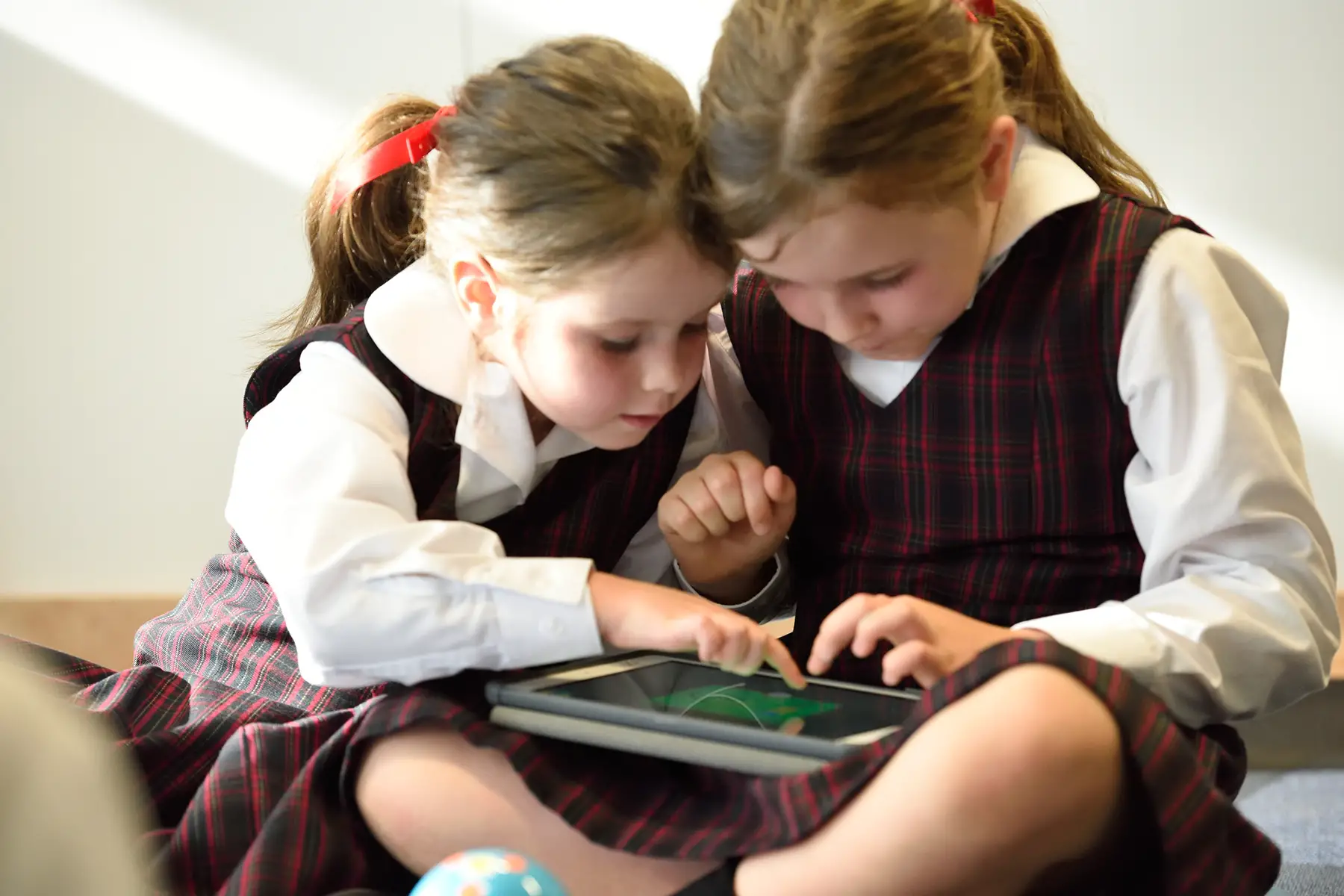What is the International Primary Curriculum?
Getting a primary curriculum right is more difficult than ever because it has to meet multiple goals. The most essential goals are:
- Rigorous learning: This means paying attention to essential and transformational knowledge as well as the development of key skills. Slow and steady progress towards deep understanding across a broad range of subjects is crucial when it comes to rounding out a child’s education.
- High levels of children’s engagement: Schools must ensure that this rigorous learning can win the battle against superficially more exciting out-of-school activities. Children should enjoy the learning process enough to want to continue throughout their lives. It’s also essential to incorporate accessible opportunities for parental involvement.
- International, global, and intercultural awareness: Many of the world’s problems arise from different groups not knowing or respecting each other. Many opportunities open to today’s youth will be in places vastly different from where they grew up.
- Developing personal dispositions: This means creating opportunities for children to develop qualities that help them on their journey through life. Qualities such as adaptability, morality, respect, resilience, enquiry, cooperation, communication, and thoughtfulness are crucial.
- Supporting teachers: Schools must provide their teachers with all of the right tools to carry out the curriculum to the best of their ability. A curriculum is only as good as the teachers that use it; providing resources for teachers gives students the opportunity to learn best.
One curriculum – the International Primary Curriculum – is attempting to meet all of these needs. How does the International Primary Curriculum (IPC) ensure rigorous learning? What does a high level of engagement mean at IPC schools? How do students develop their own personal dispositions? What is it about the IPC that has gained the commitment of over 700 schools in over 90 countries?
Engaging children
Children learn best when they want to. That’s why the International Primary Curriculum has over 80 different thematic units of learning; they’re all child-friendly, modern-day topics appealing to all ages. Teachers use themes as the hook, the learning platform, and the wrapping paper to engage children. Thematic learning enables young children to remain motivated while learning science, geography, or history. It also allows them to make purposeful links and connections; students see how a subject is related to the world they live in.
Within each theme, the IPC suggests many ideas for collaborative learning, active learning, learning outside the classroom, and role play. “All these approaches are crucial factors affecting engagement,” says Director of the International Primary Curriculum, Steven Mark. “Teamwork with a purpose, where every person plays a vital but different role, enables children to become deeply engaged in their learning, especially when that learning is relevant to their interests and needs. At the same time, there’s a huge flow of knowledge; this develops a variety of skills.”

For example, the IPC Rainforest unit uses role play for students to debate the impact of slash-and-burn agriculture. “Child-friendly themes involving issues relevant for today’s children and creating opportunities for them to make their own choices in the progress of their learning,” continues Steven. “As a result, the learning becomes inspiring and fulfilling for them.”
The IPC’s approach also encourages parental involvement. Students, inspired by their learning, are encouraged to speak freely with their family about what they’ve done at school. This often prompts children to continue learning more at home. Parental involvement is also promoted through learning-focused letters, extended learning ideas, and end-of-unit events.
Rigorous learning
Each International Primary Curriculum unit incorporates most of the core subjects. They also provide many opportunities to incorporate literacy and numeracy. Subjects are only included into each theme if there is a direct link between the required learning and the ideas behind the theme. Each subject then has a number of learning tasks; these tasks help students meet a range of learning goals set out in the curriculum.
Take, for example, the IPC Chocolate unit. In history, children explore the discovery of chocolate, the period it was discovered, the motivation for discovery, and the changing attitude towards chocolate. In geography, they look at the countries that grow cacao and how particular localities were affected by its production. They explore the links between countries that grow cacao and countries that produce chocolate. In art, children look at how chocolate is sold and how packaging is designed. In science, children use the chocolate unit to look at the energy values in foodstuffs to explore the effects of temperature change.
Skills need time to develop. As a result, children must always have the opportunity practice core skills. To develop them, individuals need context and purpose. This is why the International Primary Curriculum suggests practical, real-life learning experiences. Units encourage children to work both individually and together towards their learning goals. Students should be able to see that they’re learning something from a particular discipline within the context of an overarching theme.
Intercultural awareness
Each International Primary Curriculum unit has learning-focused activities embedded within it. These units help young children develop a global awareness. Each unit creates opportunities to look at learning of the theme through a local perspective, a national perspective, and an international perspective.

With schools all over the world, opportunities abound for children to share their experiences related to an IPC unit with students in different localities. Take the children at the International School of Iceland; students there shared their first-hand experiences of the 2010 Eyjafjallajökull volcanic eruption with fellow IPC students from around the world within the context of the IPC Active Planet unit. These children listened to, communicated with, and learned from each other in a real-world context.
Developing personal dispositions
Our personal dispositions we form as individuals don’t come from reading about them in a book or discovering them spontaneously. Rather, students build personal skills gradually over time through constant use and interaction with others. That’s how the International Primary Curriculum views children’s learning of personal skills. Instead of dedicated lessons about morality or respect, opportunities to experience specific personal dispositions are built into learning tasks. In addition, many of these tasks are group activities that encourage children to consider each others’ ideas and opinions, share responsibilities, respect other people’s views, and communicate effectively.
For example, in the IPC Water unit, a group of children must build a model of a water turbine. They start by creating it from cardboard; through their own research and development (along with gentle guidance from the teacher), work out how to improve their design to make it more resilient and effective. On the one hand, students learn about the power of water; beyond this, they’re also developing the skills of cooperation, enquiry, communication, and adaptability.
Supporting teachers
Each IPC unit has a structured, yet flexible, teaching framework providing teachers with a series of learning tasks. These are designed to achieve learning goals through creative, meaningful, and memorable learning activities that appeal to all learning styles and any ability level. However, the learning tasks are purely a guide; they provide plenty of scope for creative teaching, personalization to the class, and development on the theme.
As an example, British international schools cross-reference IPC learning goals with the National Curriculum for England. This allows teachers the assurance that their children are learning in a rigorous as well as engaging, creative, and relevant way. Cross-references are also available for Welsh and Scottish students to be able to learn using their home curriculum abroad.
The International Primary Curriculum started purely as a curriculum. But after years of development, there is a considerable IPC community; over 700 schools in over 90 countries use the International Primary Curriculum.




